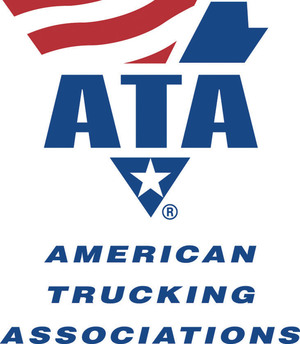ATA Chairmen Tell FMCSA That HOS Rules are Safe
LOS ANGELES, Jan. 25 /PRNewswire-USNewswire/ -- The American Trucking Associations (ATA) told the Federal Motor Carrier Safety Administration (FMCSA) that the trucking industry has seen a large decline in the truck-involved fatality rate since the current Hours of Service (HOS) rules took effect. The continually improving safety figures illustrate the real-world benefits of the current rules, which are based on a decade of extensive research and analysis. ATA Chairman Tommy Hodges and Vice Chairman Daniel England expressed those views today during their remarks at an FMCSA listening session in Los Angeles.
Hodges, Chairman of Titan Transfer in Shelbyville, Tenn., and England, who is Chairman and President of Salt Lake City-based C.R. England, addressed ATA's policies on the HOS rules. They said the 34-hour restart provides drivers the ability to gain quality rest. The most recent figures from the U.S. Department of Transportation (DOT) indicate that the truck-involved fatality rate in 2008 declined 12.3 percent to 1.86 per 100 million miles, from 2.12 per 100 million miles in 2007. This decline marks the largest year-to-year drop ever and the fifth consecutive year the fatality rate has dropped. Persons injured in large truck crashes went from 44.4 per 100 million miles to 39.6, an 11 percent reduction. Since the new HOS regulations took effect in 2005, the rate of persons injured in large truck crashes has dropped 25 percent and the truck-involved fatality rate has dropped 22 percent. The fatality rate is at its lowest since the DOT began keeping those records in 1975 and has dropped 66 percent since that time.
While the current HOS rules are good, ATA believes the rules can be improved by allowing more flexibility in the sleeper berth provision in order to encourage circadian friendly sleep and naps. Constraining drivers to one, inflexible option overlooks the individual needs of each driver.
America's Road Team Captain Ben Saiz spoke at the listening session and said the current HOS rules are working. With 48 years behind the wheel and 4.5 million accident-free miles, Saiz told the panel that professional drivers should be the judges of when they need rest. A mandate may not take into account how the driver is feeling that day, said Saiz, a relay driver for ABF Freight System. He also noted that professional drivers are alert and safe whether driving during the day or night, and that night-time hours should remain the same.
To better address the true causes of fatigue, FMCSA should focus its resources on (1) sleep disorder awareness, training and screening, (2) promoting the use of Fatigue Risk Management Programs, (3) increasing the availability of truck parking on important freight corridors and (4) partnering with the trucking and shipping communities to develop an educational process that identifies for drivers the location of available truck parking.
The listening session was the third of four being held around the country as the FMCSA again considers HOS changes requested by special interest groups like Public Citizen and Advocates for Highway and Auto Safety. A final listening session will be held on Jan. 28 in Davenport, Iowa. FMCSA officials are considering adding a session limited to truck drivers. For time and location details of each of the sessions, visit the FMCSA's information page at http://www.fmcsa.dot.gov/rules-regulations/TOPICS/HOS/HOS-Listening-Sessions.aspx
The American Trucking Associations is the largest national trade association for the trucking industry. Through a federation of other trucking groups, industry-related conferences, and its 50 affiliated state trucking associations, ATA represents more than 37,000 members covering every type of motor carrier in the United States.
SOURCE American Trucking Associations
WANT YOUR COMPANY'S NEWS FEATURED ON PRNEWSWIRE.COM?
Newsrooms &
Influencers
Digital Media
Outlets
Journalists
Opted In





Share this article